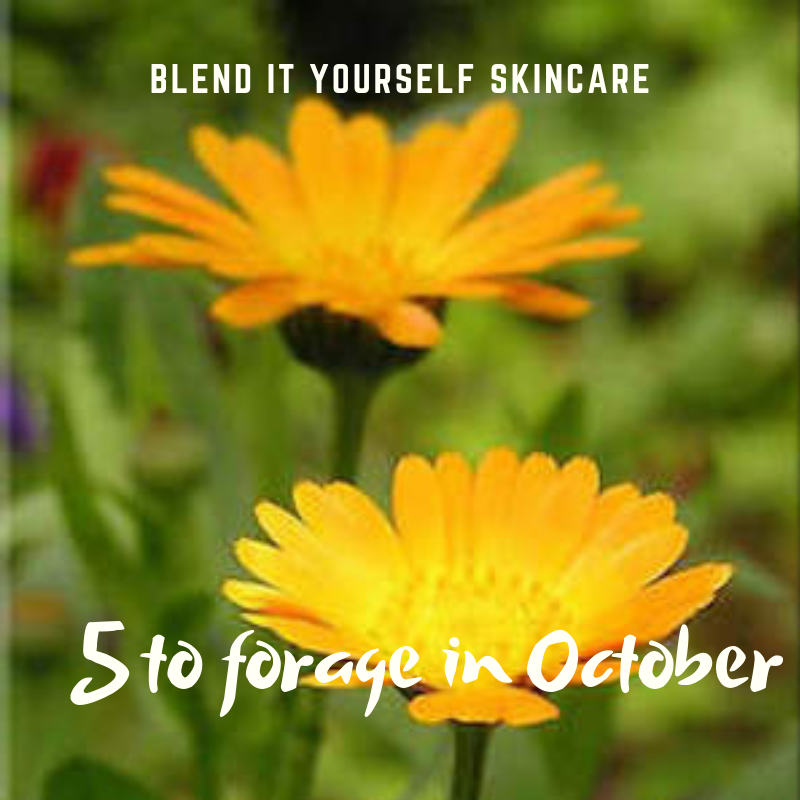
5 TO FORAGE IN OCTOBER
PARSLEY
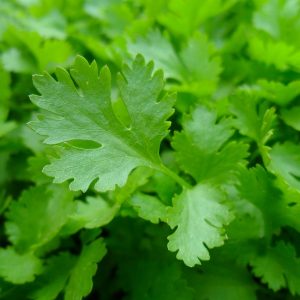
Parsley has long been associated with good health, so it’s a great herb to pep you up through winter, add it to soups and salads or to a fish pie or egg sandwich. But save a bit for using on your skin, there are lots of ways to benefit from it. Parsley is great added to face packs, lotions, creams and cleansers – especially if you have oily skin or thread veins. A tonic made from infused parsley can help even out blotchy skin and boost sallow skin. So if your skin is starting to look a little winter-weary, reach for the parsley.
Here’s an idea for a quick blend-it-yourself face mask using fresh greens to bring vitality on a grey day. You’ll find this and many more recipes using parsley and other herbs throughout the seasons in Vital Skincare:
Green Healing Face Pack
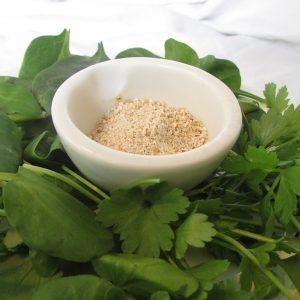
Take a handful of parsley and a handful of spinach, chop them roughly and put into a pan then pour over 1 cup (237ml) of water and bring to the boil. Hold for five minutes, then cover and leave to cool. Press the cooled greens through a sieve to extract the juices and mix this with enough oatmeal to make a smooth paste (about 2 tbsps, 30g should be enough). If your skin is oily or sensitive you could benefit from adding a little natural yoghurt to the blend too.
Now you’re ready to apply this to your face, avoiding the eyes. Lie back for ten minutes, a good time for contemplation or meditation, and then rinse the pack off with warm water. Finish with your favourite nourishing plant seed oil.
One quick word of warning – parsley can lighten skin so make this an occasional treat, not an everyday practice and don’t go out in bright sunlight straight afterwards, best for an evening wind-down.
SAGE
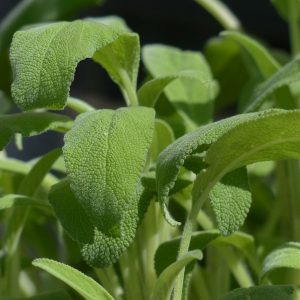
Sage is found world wide, especially in warmer temperate regions. It’s soft leaves are great for use in skincare. Salvia officinalis is the basic herb, its sister herb, Salvia sclera, is known as clary sage and much loved for skincare. For a simple lotion to aid complexion, a handful of clary sage leaves heated in water, cooled and strained will be really soothing. A similar treatment using milk in place of water will create a soothing support for sore eyes.
Sage is also useful in haircare – it has a reputation for darkening grey hair and can condition and colour dark hair. It makes a good inclusion in deodorants and mouthwashes as well as being helpful against insect bites and gum or skin infections. It’s name comes from the latin ‘salvere’, to save, indicating a long history of medicinal use.
ROSEMARY
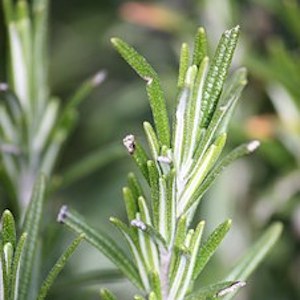
Rosemary is a wonderful skincare herb, not least because it contains antioxidant compounds of carnosic acid and carnosol. These are often deployed to prolong the life of herbal macerations, a few drops of rosemary essential oil being added as the oil is strained off the herbs. As well as preventing oxidation of oils, rosemary’s antioxidant properties are great for our skin, helping protect against the ageing damage caused by free radicals.
Rosemary also has a great stimulating effect on the circulation which can help improve the scalp and tackle hair issues as well as being helpful in treating rheumatism, arthritis, neuralgia and muscular injuries. Rosemary is a great herb to include in body oils to relieve muscle pain, boost circulation bringing more vitality to skin and stimulate brain activity. So if you’re feeling sluggish, reach for the rosemary.
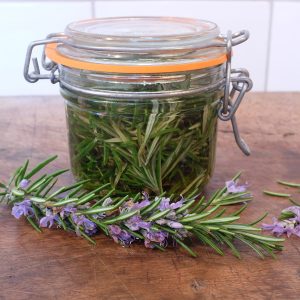
Rosemary is especially good for hair treatments. If you have greasy hair, use cider vinegar steeped with rosemary (about 30g of herb with 300ml of cider vinegar, left to stand for 10 days, then strained). Add half a cup to your final rinse when washing hair. Keep the remainder in the fridge, it will last for four to six weeks. If you have dry hair, macerate rosemary in oil, sunflower oil will work well (30g herb with 300ml oil, leave on a sunny windowsill for up to six weeks, giving a gentle shake each day). Rub the rosemary-infused oil into your scalp and wrap with a hot towel. Leave for 30 minutes before washing off with a gentle shampoo. The oil should keep for up to 12 months in a dark bottle.
THYME
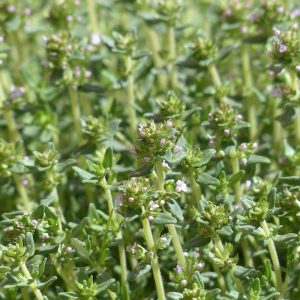
There are so many different varieties of thyme – possibly around 350 different species across Europe and Asia – typically the most basic varieties of a herb, the most commonly found, will be the ones traditionally used in skincare. It’s about making use of the the plants that grow nearby, most will not have travelled far to gather their herbs.
Thyme is one of the strongest natural antiseptics so you’ll often find it included in mouthwashes and toothpastes. I’ve been including thyme essential oil in my blend-it-yourself hand sanitiser. Thyme is also a positive help in treating acne and good to include in deodorants as well as hair treatments, especially for dandruff and fortifying the scalp. It’s lovely too included in a oil for body rubs or bathing. Just be aware that it is very fragrant – you’ll know that if you’ve ever rubbed your hand across a thyme plant – so you’ll only need a little in any blend to get the benefit without being overpowered. Also, as the days get colder, if you find yourself feeling a little under the weather, perhaps with a cold and catarrh, thyme will be your friend.
MARJORAM
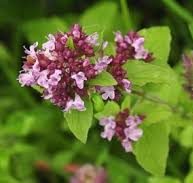
If the herbs above have got you humming, I admit to having gathered them together deliberately! Parsley, sage, rosemary and thyme were immortalised as one posy in the folk song ‘Scarborough Fair’ and, happily, they are all good herbs for oily skin or hair. The song helps make this collection of truly useful herbs very memorable. I make a shampoo bar containing these four herbs which I call ‘Scarborourgh Fair Shampoo’, it’s great for oily hair.
But I’ll always try to offer up five herbs each month that you can benefit from using in blend-it-yourself skincare, and the fifth that I’d add to this posy is marjoram. Another highly pungent herb, flowering right the way through spring, summer and still into autumn and often found in abundance in gardens and hedgerows.
The basic form, known as sweet marjoram, is a helpful addition to baths and massage oils to combat tiredness and help with muscular pains or stiff joints. It’s also lovely to use in a toner – simply infuse flowers and/or leaves in hot water, leave to cool and then use to tone after cleansing. Similarly, you can add a few drops of marjoram essential oil to rosewater for a luxury version of the toner. Given its lovely, sweet and herbal scent, dried marjoram is also a great addition to a herb pillow to help sleep. The one caution with marjoram is to avoid use of this while pregnant.
LIKE THE IDEA OF GATHERING YOUR OWN SKINCARE INGREDIENTS? …
… you might like to read some more.
For everything you need to know to get started with Blend-it-Yourself skincare using the plants that grow around you, see Vital Skincare by Laura Pardoe. This book takes you through the techniques and ingredients you’ll need to know to make your own natural skincare.

